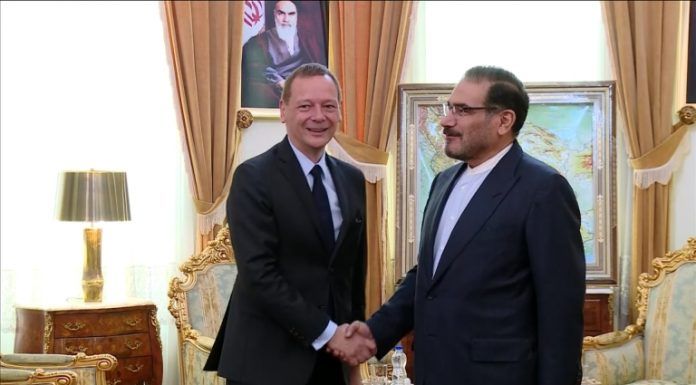By John Irish and Stephen Kalin
PARIS/RIYADH, Sept 17 (Reuters) – An attack on Saudi oil installations that halted half the kingdom’s output could harm French diplomacy meant to avert feared U.S.-Iranian conflict, diplomats said after President Emmanuel Macron’s top envoy held talks in Saudi Arabia.
They said France was trying to pinpoint the origin of Saturday’s strike on the oil infrastructure of the world’s top crude exporter as it pursues diplomacy to defuse tensions across the Persian Gulf region.
The United States has blamed Tehran for the attack. Iran has denied responsibility and on Tuesday again ruled out talks with Washington unless it rescinds sanctions and returns to a 2015 nuclear deal with Iran that it ditched last year.
“Up to now France doesn’t have proof permitting it to say that these drones came from such and such a place, and I don’t know if anyone has proof,” Foreign Minister Jean-Yves Le Drian told reporters during a visit to Cairo on Tuesday.
“We need a strategy of de-escalation for the area, and any move that goes against this de-escalation would be a bad move for the situation in the region,” he said.
Macron spent the summer trying to damp down an intensifying crisis between Washington and Tehran, and the attack on Saudi oil facilities has placed him in an awkward with Saudi Arabia, a pivotal regional ally.
Three diplomats said Emmanuel Bonne, a Middle East expert who has steered Macron’s diplomacy, met Saudi Crown Prince Mohammad bin Salman in Jeddah on Monday. The trip had been scheduled before the weekend attacks.
Macron’s office declined comment.
With Macron’s diplomatic push at stake and the fate of the international nuclear pact with Iran uncertain, France wants to compile an independent assessment of the attack, including the original launch location and the exact weapons used. U.S. officials said Iranian arms were used, but given no proof.
[aesop_image img=”https://kayhanlife.com/wp-content/uploads/2019/09/2019-09-11T131824Z_338512762_RC192B23EFB0_RTRMADP_3_ARAMCO-IPO-BANKS.jpg” panorama=”off” credit=”FILE PHOTO: A production facility is seen at Saudi Aramco’s Shaybah oilfield. REUTERS/Ahmed Jadallah/” align=”center” lightbox=”off” captionsrc=”custom” captionposition=”left” revealfx=”off” overlay_revealfx=”off”]
ATTACK “DOESN’T HELP”
“We have some elements on the attack that are not ours that we are studying, but we want to check with our own sources and it takes time,” a French diplomatic source said on Tuesday.
“The attack doesn’t help what we are trying to do, but before we leap into the blame game, we need something concrete.”
Macron sent Bonne to meet senior Iranian officials during the summer and tried to use his personal rapport with U.S. President Donald Trump to open talks between the two sides.
European leaders have struggled to quell the confrontation between Tehran and Washington since Trump pulled out of the nuclear deal, which promised Iran access to world trade and investment in return for curbs on its disputed nuclear activity.
At a G7 summit in France last month, Trump suggested a meeting with Iranian President Hassan Rouhani could happen within weeks, which would mark a diplomatic coup for Macron. But Trump and Rouhani have since played down that possibility.
Iran has retreated from full compliance with the deal since the U.S. pullout, exceeding limits on uranium enrichment.
To reverse Iran‘s retaliatory moves and launch broader talks covering its ballistic missiles and regional behaviour, as Trump demands, Macron has suggested a multi-billion-dollar credit line to enable Tehran to ease an economic crisis wrought by U.S. sanctions that have decimated Iran‘s vital oil trade.
But that hinges on some U.S. flexibility in applying sanctions including waivers for European allies buying Iranian oil. Washington has shown no signs of backing down.
“When both sides don’t want to play ball there’s only so much we can do,” said a second French diplomat.
(Additional reporting by Aidan Lewis in Cairo Editing by Richard Lough and Mark Heinrich)


